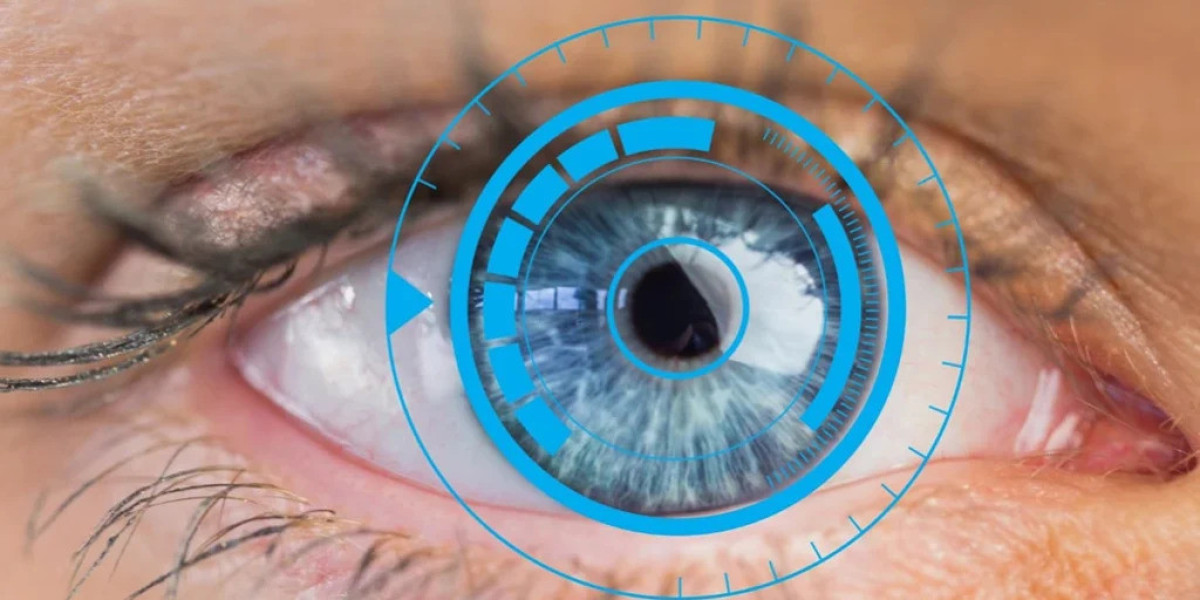Uveitis is an inflammation of the middle layer of the eye, known as the uvea, which includes the iris, ciliary body, and choroid. When this inflammation becomes chronic or recurrent, it can cause serious vision problems and discomfort.
The condition often develops silently, with symptoms like redness, pain, and light sensitivity appearing once the inflammation has already begun.
Early diagnosis and timely Uveitis Treatment can prevent complications such as glaucoma, cataract, or even permanent vision loss.
Why Nutrition Plays a Vital Role in Eye Health
Nutrition is a powerful ally in protecting the eyes against inflammation and maintaining overall visual health.
The foods we eat can influence how the body manages inflammation and oxidative stress—both key factors that trigger uveitis.
A well-balanced diet rich in antioxidants, omega-3 fatty acids, vitamins, and minerals helps support immune function and may reduce the risk of Uveitis recurrence.
The Link Between Inflammation and Uveitis Recurrence
Uveitis is often linked to autoimmune reactions, where the body’s immune system mistakenly attacks healthy eye tissues.
Recurring episodes are usually triggered by inflammation that the immune system fails to control completely.
By improving the body’s defense mechanisms through proper nutrition, the eyes gain better protection against such immune flare-ups.
Nutrients That Support Eye Health and Prevent Recurrence
Vitamin A:
Essential for maintaining a healthy cornea and good vision, vitamin A also helps the immune system regulate inflammatory responses.
Foods like carrots, spinach, and sweet potatoes are excellent sources of this nutrient.
Regular intake helps reduce dryness, sensitivity, and irritation in the eyes.Vitamin C:
Known for its antioxidant properties, vitamin C protects delicate eye tissues from oxidative damage.
Citrus fruits, strawberries, and bell peppers supply ample amounts of this vital vitamin.
It helps strengthen the blood vessels in the eyes, promoting faster recovery after Uveitis Treatment.Vitamin E:
This nutrient works with vitamin C to neutralize free radicals that cause inflammation.
Nuts, seeds, and leafy greens provide natural vitamin E that supports long-term eye protection.
It plays a crucial role in reducing inflammation associated with chronic uveitis.Omega-3 Fatty Acids:
Found in fish such as salmon, sardines, and flaxseeds, omega-3s help manage inflammation throughout the body.
These fatty acids support the tear film and reduce dryness, a common complaint after Uveitis episodes.
Incorporating omega-3s regularly into your diet helps control the inflammatory cycle.Zinc and Selenium:
These trace minerals assist in immune regulation and tissue repair within the eye.
Whole grains, nuts, and legumes are rich in zinc and selenium, promoting faster healing.
They also enhance the effectiveness of other antioxidant vitamins in preventing inflammation.
Foods That Help in Uveitis Prevention
A diet rich in natural, unprocessed foods can help minimize inflammation.
Incorporate colorful vegetables like kale, bell peppers, and spinach for their phytonutrient content.
Fruits such as oranges, blueberries, and papayas provide antioxidants that neutralize harmful free radicals.
Include whole grains like oats and brown rice for sustained energy and improved blood circulation.
Lean proteins such as lentils, eggs, and fish support tissue repair after Uveitis Treatment.
Avoid processed foods, refined sugars, and trans fats, which can aggravate inflammation and delay recovery.
Hydration and Eye Wellness
Water plays a critical role in maintaining the body’s detoxification process and ensuring that nutrients reach the eyes efficiently.
Dehydration can worsen inflammation, causing more irritation and redness in sensitive eyes.
Drinking adequate water daily and consuming hydrating foods like cucumber and watermelon can assist in preventing Uveitis flare-ups.
Lifestyle Changes That Complement Eye Nutrition
Regular Eye Health Checkups:
Routine visits to an eye specialist ensure early detection of inflammation or vision changes.
Follow-up examinations after Uveitis Treatment help monitor eye condition and prevent relapse.
Consistent checkups at a trusted eye hospital can make a difference in preserving vision.Managing Stress:
Chronic stress weakens the immune system and can trigger autoimmune eye conditions.
Relaxation techniques such as meditation, yoga, and deep breathing help maintain emotional balance.
A calm mind supports faster healing and reduces recurrence risk.Adequate Sleep:
Rest is vital for tissue repair and immune recovery.
Poor sleep habits can increase inflammation and slow down the healing process.
Aim for 7–8 hours of sleep to maintain optimal eye and immune health.Protection from UV Rays:
Prolonged exposure to sunlight can worsen eye inflammation.
Wearing UV-protected sunglasses helps shield sensitive eyes and prevents potential triggers.
This simple habit significantly reduces the chance of Uveitis recurrence.
How Diet Supports Medical Uveitis Treatment
While nutrition alone cannot replace medical care, it plays an important supportive role in recovery.
Proper diet ensures the body responds better to medications prescribed during Uveitis Treatment.
It enhances energy levels, strengthens the immune system, and reduces side effects caused by anti-inflammatory drugs.
Patients who combine a balanced diet with prescribed treatment often experience fewer flare-ups and faster healing.
Maintaining consistent dietary discipline helps sustain results achieved through medical care.
This holistic approach ensures both body and eyes remain healthy and resilient.
The Importance of Choosing the Right Eye Hospital
Managing Uveitis requires ongoing care and specialized expertise.
An advanced eye hospital with dedicated retina and uvea specialists ensures accurate diagnosis and personalized treatment.
Such centers focus on comprehensive eye health rather than short-term symptom relief.
Look for a hospital that integrates nutrition advice, counseling, and regular follow-up checkups.
This multidisciplinary approach helps control inflammation while promoting long-term wellness.
It also ensures that every aspect of your vision care journey is handled with precision and compassion.
Conclusion:
Good nutrition is not just about preventing disease; it’s about nurturing your eyes for a lifetime of clear vision.
Combining healthy eating habits with medical care and regular checkups helps minimize Uveitis recurrence.
Every small dietary change contributes to better eye strength, immunity, and overall wellbeing.
When you choose a trusted eye care partner, your journey to recovery becomes more reassuring and complete.
With expert specialists, advanced diagnostics, and compassionate care, MaxiVision Eye Hospital stands as a super speciality eye hospital dedicated to long-term eye health.














